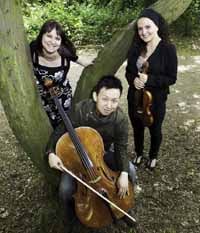Awarding opportunities
Henry Bird explains how giving support to up-and-coming musicians is having a positive impact on amateur music-making

At Making Music, we’re committed to giving talented young musicians the exposure and opportunities needed at the start of a successful performing career. As the UK’s number one organisation for voluntary music, we’re also well placed to do so: our membership comprises over 3,000 amateur promoting, vocal and instrumental groups that often need high-quality soloists for their concerts, but can’t necessarily stretch to the fees charged by established artists. The Phillip and Dorothy Green Award for Young Concert Artists is our way of providing links between these groups and up-and-coming classical performers. Established over 50 years ago, the award is given every year to a small group of the UK’ s finest young musicians, who are then available to book at subsidised rates by our member groups. Applications are accepted every autumn, and are open to instrumentalists between the ages of 21 and 27 and singers between the ages of 21 and 31.
The success of the scheme is shown in part by the many famous names on the list of previous recipients: Steven Isserlis, Ian Bostridge and Philip Fowke are among the performers to have received the award in past years. More recently, the award has helped the careers of artists now making a name for themselves on the classical music scene, including Thomas Gould, Oliver Coates and Gemma Rosefield.
What has really made the scheme so successful, however, is the fact that it creates relationships that are mutually beneficial to the music groups and the young performers. The scheme is cherished by our member groups, which use it year-on-year as a way of booking top flight soloists at affordable rates, often using several artists from the scheme in a single season. In a number of cases, long-standing relationships have developed, with artists being invited back in subsequent years. This makes it all the more rewarding for the young artists, who are able to build rapport with audiences over multiple performances while having the stability of recurring performing engagements.
You don’t just have to take our word about the value of the scheme to the young musicians involved, as we often hear from previous recipients telling us how much being given the award has helped them in their careers. Richard Saxel, pianist and 2002 Award winner, describes it as offering “an outstanding opportunity to develop the skills needed to become a professional musician”, and providing “an invaluable means of bridging the gap between being an outstanding student and becoming a professional… winning the Award in 2002 is still providing me with opportunities some years later!”.
Join the Discussion
You must be logged in to post a comment.